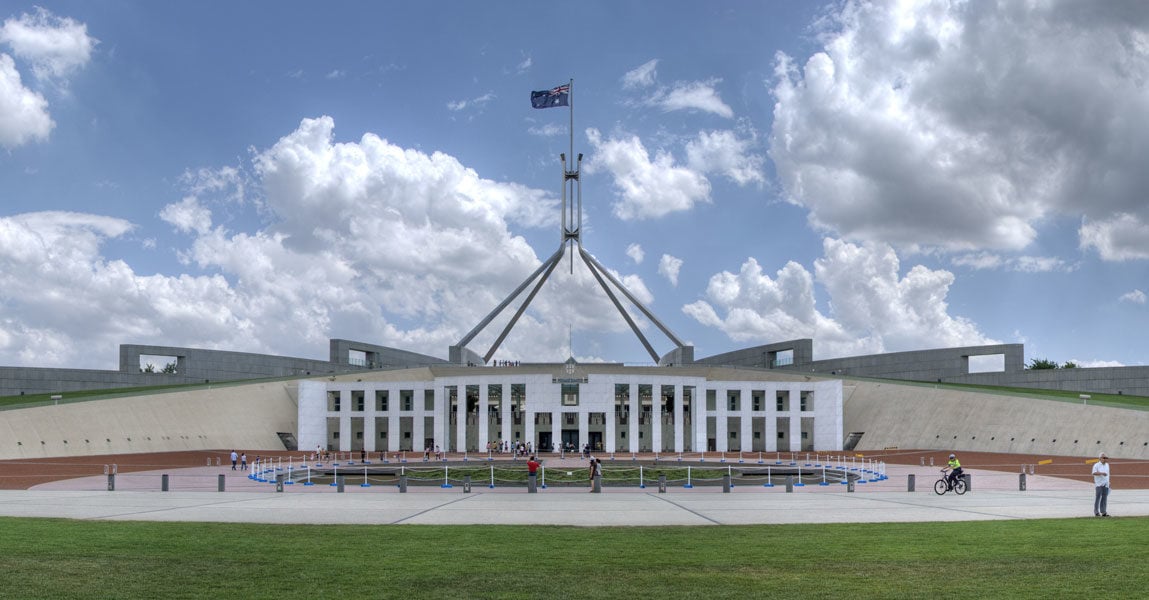One of the biggest stories of the year has been the rollout of the News Media and Digital Platforms Mandatory Bargaining Code. Also called the Media Code laws, they were brought in by the government to force companies like Google and Facebook to pay Australian news companies for any content featured on their platforms.
In response, January saw Google going as far as to threaten to pull out of the country completely, and in February Facebook briefly pulled all of its news content in Australia.
After a lengthy process, the senate presented its report and into the laws, and Google launched its News Showcase product to comply with them. From there, major media platforms began making deals with Google and Facebook.
Jan 27: What is News Showcase, Google’s solution to media code laws?
As the News Media and Digital Platforms Mandatory Bargaining Code – often just called Media Codes – continues to work its way through the Senate committee, major tech companies Google and Facebook continue to oppose it. As a solution, Google has put forward the Google News Showcase – a program run by the platform which would operate under the code, as well as some proposed amendments to the draft.
Google has said that the passing of the media code laws would set a “dangerous precedent,” and has called the draft code “unworkable” in its current form. The company even went as far as to say they would have no choice but to shut down the Australian branch of Google if the laws were to pass.
Google News Showcase is a program that was announced in 2020, and was originally meant to be rolled out first in Australia, Germany, and Brazil. Once the Australian Government moved ahead with debating the media codes, however, Google pulled the rollout in Australia. Germany and Brazil are currently the only countries where News Showcase is live.
According to an open letter penned by Google Australia’s Managing Director, Mel Silva, the News Showcase will have AU$1.3 billion invested into it over the next three years, and will be paying journalists for their “editorial expertise and beyond-the-paywall access to their journalism, rather than for links.”
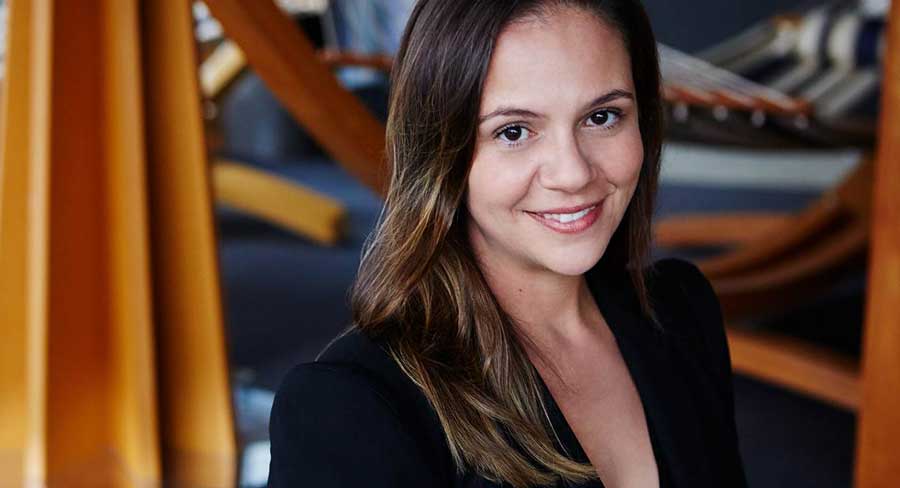
Mel Silva
Essentially, the program will pay participating news organisations to give users access to some – but not all – paywalled articles. The users will still need to subscribe directly to the news organisations to access everything, which Google says is “providing a way for the publisher to build a relationship with readers.”
The platform displays news to users using a sliding panel that users can scroll through to access articles, and has recently added a panel to highlight top articles from news sources that a user chooses. This panel, called the “For You Feed”, will give a user updates on local, national, and international news from any outlet that they manually follow.
Speaking at the Senate Committee hearing into the media code laws last week, Nine’s Managing Director of Publishing, Chris Janz, criticised the News Showcase model.
“Google claims to be open to paying for news by pointing to their Showcase product – a product that was recently announced but is yet to launch,” he said.
“[News] Showcase is exactly what you would expect from a monopoly. It works at a price set by Google based on an opaque global formula.
“The take-it-or-leave-it terms are set by Google. And it doesn’t address the bargaining power imbalance of Google’s core search product identified by the ACCC.”
While the debate between tech companies and news organisations continues in Australia, Google has reached an agreement to pay French news organisations for the use of their work. A translated version of the decision reads:
“Google unilaterally decided that it would no longer display article extracts, photographs, and videos within its various services, unless the publishers give it to them, free of charge.
In practice, the vast majority of press publishers have granted Google free licenses for the use and display of their protected content, without negotiation and without receiving any remuneration from Google.”
Feb 12: Senate presents its report into Media Bargaining Code laws
The Australian Senate Economics Legislation Committee has officially presented its report into the Treasury Laws Amendment (News Media and Digital Platforms Mandatory Bargaining Code) Bill 2020, more commonly referred to as the Media Code laws.
The bill, which has seen strong arguments for and against it, aims to correct the imbalance of power between big tech companies and news organisations. It aims to do this by making tech companies that host news content on their sites pay the news outlets for their work among other concessions.
Google and Facebook have been vocal opponents of the drafted code, with Google going so far as to threaten to pull out of the Australian market. Microsoft, on the other hand, has been a supporter of the code.
Importantly, the report acknowledges that the media code laws are not the only way tech companies and news outlets can interact going forwards.
“The framework contained in the bill recognises that agreements can be entered into outside of the code. Indeed, they are encouraged to be entered into outside of the code. Where a news media business reaches an agreement with a digital platform, it can agree to not bargain or pursue compulsory arbitration under the code,” the report states.
“If a news media business cannot reach an acceptable agreement with a digital platform outside of the code, it will have the option to trigger aspects of the code to address the bargaining power imbalance. This includes minimum standard obligations that digital platforms must meet for all news media businesses registered under the code, requirements for good faith bargaining over remuneration, and the application of final offer arbitration if bargaining between the parties does not succeed.”
In 12 months, the code will be reviewed by the government to “test the effectiveness of its operation.”
Overall, there are six main elements to the bill which the report says will address bargaining power imbalances between digital platform services and Australian news businesses. These are:
• Bargaining – which require the responsible digital platform corporations and registered news business corporations that have indicated an intention to bargain, to do so in good faith;
• Compulsory arbitration – where parties cannot come to a negotiated agreement about remuneration relating to the making available of covered news content on designated digital platform services, an arbitral panel will select between two final offers made by the bargaining parties;
• General requirements – which, among other things, require responsible digital platform corporations to provide registered news business corporations with advance notification of planned changes to an algorithm or internal practice that will have a significant effect on covered news content;
• Non-differentiation requirements – responsible digital platform corporations must not differentiate between the news businesses participating in the Code, or between participants and non-participants, because of matters that arise in relation to their participation or non-participation in the Code;
• Contracting out – the bill recognises that a digital platform corporation may reach a commercial bargain with a news business outside the Code about remuneration or other matters. It provides that parties who notify the ACCC of such agreements would not need to comply with the general requirements, bargaining and compulsory arbitration rules (as set out in the agreement); and
• Standard offers – digital platform corporations may make standard offers to news businesses, which are intended to reduce the time and cost associated with negotiations, particularly for smaller news businesses. If the parties notify the ACCC of an agreed standard offer, those parties do not need to comply with bargaining and compulsory arbitration (as set out in the agreement).
Nine, a vocal supporter of the code, is glad to see the report finalised.
“We welcome today’s Senate committee report which again highlights the need for action to level the playing field between Australian media and the global tech monopolies and ensure the ecosystem remains sustainable for those who create journalism,” said a Nine spokesperson.
“We want to thank the ACCC, the government, and the Parliament who have all now examined the issues at play exhaustively. Now is the time for action and for the media code to be legislated.”
Throughout the negotiations Google has been the biggest critic of the code, calling it unworkable. Lucinda Longcroft, Google’s Director of Government Affairs & Public Policy for Australia & New Zealand has said that they will continue to push for amendments to the law.
“As we’ve said since the draft was released in July last year, we remain committed to a workable Code – the concerns that we, and others, have been raising consistently are about specific aspects of the Code. We’ve proposed reasonable amendments, including fair arbitration and that the Code apply to News Showcase, which is already paying publishers and supporting journalism in Australia, the UK, and around the world. We look forward to engaging with policymakers through the parliamentary process to address our concerns and achieve a Code that works for everyone – publishers, digital platforms, and Australian businesses and users,” she said.
The full report can be read here.
Feb 15: Google Showcase gets first big deal in Seven West Media
Seven West Media has announced it has entered into a long-term partnership with Google to provide news content to the Google Showcase product which launched in Australia in early February.
Seven West Media chairman Kerry Stokes said: “This is a great outcome for Seven West Media and for Google. Our new partnership recognises the value, credibility and trust of our leading news brands and entertainment content across Seven and West Australian Newspapers.
“I’d like to thank Prime Minister Scott Morrison and the Chair of the Australian Competition and Consumer Commission, Rod Sims, with particular recognition of Treasurer Josh Frydenberg, who has been instrumental in the outcome of this ground-breaking agreement.
“Their outstanding leadership on the implementation of the proposed News Media Bargaining Code has resulted in us being able to conclude negotiations that result in fair payment and ensure our digital future,” he said.
“The negotiations with Google recognise the value of quality and original journalism throughout the country and, in particular, in regional areas.
“Google is to be congratulated for taking a leadership position in Australia and we believe their team is committed to the spirit of the proposed code.”
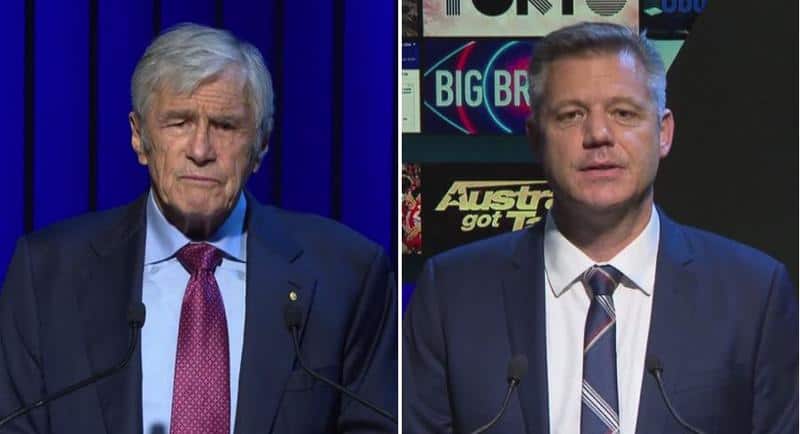
Kerry Stokes and James Warburton
Seven West Media managing director and CEO, James Warburton said: “This is another significant step in Seven West Media’s transformation journey,” he said.
“Google recognises the strength of our audiences through our engaging content and leading platforms. We are excited to be partnering with them as we pursue the next stage of our strategy.”
Feb 17: Junkee Media announces it has signed on to be a part of Google News Showcase
Junkee Media has announced that it has signed a letter of intent to curate news content for Google’s News Showcase product, Google’s much-debated Media Code law solution, which launched in Australia earlier this month.
The deal will significantly boost Junkee’s investment in public interest journalism and cement its status as Australia’s premier youth publisher.
Junkee Media CEO Neil Ackland praised Google for its proactive attitude during the negotiations.
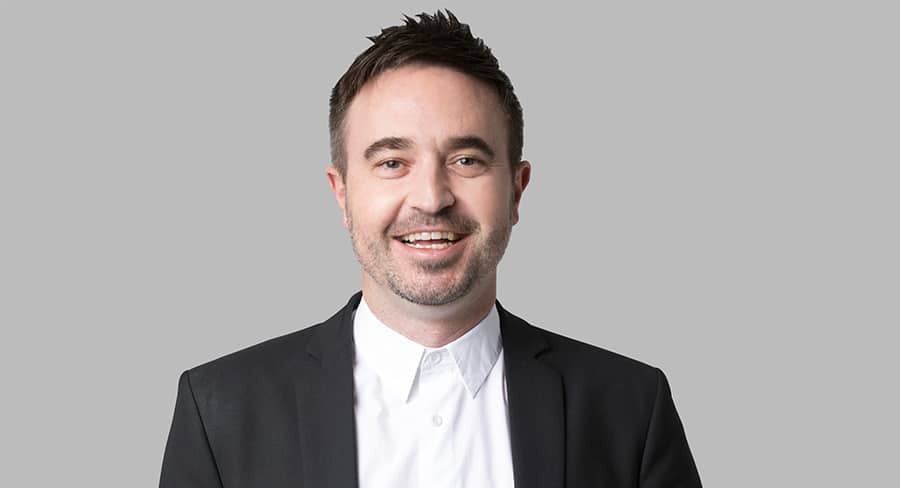
“We’re extremely pleased with the outcome of this deal. We’ve said throughout the News Bargaining Code debate that we’ve always valued our relationship with Google, and we’re very happy that it will continue,” he said.
“This is a significant investment that will allow us to set up a content infrastructure that will ensure Junkee’s sustainability well into the future.”
Junkee Media’s Editorial Director, Rob Stott, said the deal was a reflection of Junkee’s unique place in the Australian news media landscape.
“This investment will allow Junkee to create more public interest journalism that speaks to and for young Australians – for more than a decade, Junkee has been a crucial voice in the Australian media landscape, and this investment will help that voice to grow stronger and louder in the years ahead.”
Feb 18: News Corp signs with Google News Showcase
Google and News Corp have signed a multi-year partnership that will see the digital giant pay the Murdoch owned media company for premium news services.
News Corp is reported to be receiving “significant payments” for its content to be used on the Google News Showcase product and will last for three years
Robert Thomson, the chief executive of News Corp, said: “A positive impact on journalism around the globe as we have firmly established that there should be a premium for premium journalism.”
“I would like to thank [Google CEO] Sundar Pichai and his team at Google, who have shown a thoughtful commitment to journalism that will resonate in every country. This has been a passionate cause for our company for well over a decade and I am gratified that the terms of trade are changing, not just for News Corp, but for every publisher.”
Jun 1: Nine announces signing of Facebook and Google agreements
Nine Entertainment (ASX: NEC, Nine) has signed agreements with Facebook and Google, following the Commonwealth Government’s enacting of the News Media Bargaining Code. The move ensures that Nine will be paid for content running on Facebook and Google’s platforms.
The deal with Facebook is for the supply of news video clips and access to digital news articles on Facebook news products, for a term of up to 3 years with a minimum amount payable over the term.
The 5-year agreement with Google includes the supply of news content (excluding video) for Google’s News Showcase and other news products. Google will also expand its marketing initiatives across Nine’s platforms. The amount payable is a fixed annual fee with Nine expecting modest growth in the early years.
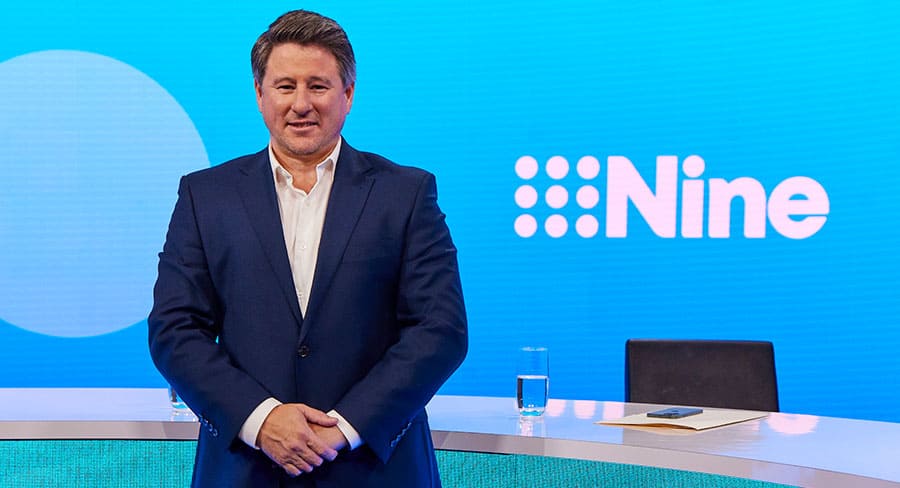
While the total amount of the deals is being kept in commercial-in-confidence, Nine expects growth of publishing earnings before interest, tax, depreciation and amortisation this financial year to be between $30 to $40 million.
In an email sent to staff, Nine chief executive Mike Sneesby said that “Our FY22 budget planning cycle is well underway, part of which is focussed on developing investment opportunities that will enable us to continue to grow and serve our audiences. These deals consolidate our position in an increasingly competitive market, but we will need to remain creative and open to opportunities to improve what we do and how we do it.”
Sep 20: Yahoo Australia becomes the latest platform to join Google News Showcase
Yahoo Australia has signed a deal with Google, becoming the latest premium publisher to join the News Showcase product.
Under the new arrangement, journalism content from Yahoo will appear across multiple Google services.
According to senior director of content at Yahoo Australia, New Zealand & South East Asia Simon Wheeler, the deal signals a significant investment in Yahoo’s quality content.
“This new deal will allow us to reinvest into producing more local, top quality journalism, and take our strategy to the next level.
“This is a historic day for not only Yahoo and Google, but for all lovers of high-quality local content. This new agreement ensures an investment in the future of Australian digital journalism.”
Nov 1: Commercial Radio Australia cleared to bargain with Google and Facebook
Industry body Commercial Radio Australia has welcomed the decision by the ACCC to grant authorisation to CRA and its members to collectively bargain with Google and Facebook over payment for content featured on those platforms.
The authorisation is for a period of 10 years until 22 November 2031.
“We welcome this decision, which provides us with the opportunity to negotiate fair compensation from Google and Facebook for access to the valuable local news and information radio stations produce,” CRA chief executive officer Joan Warner said.
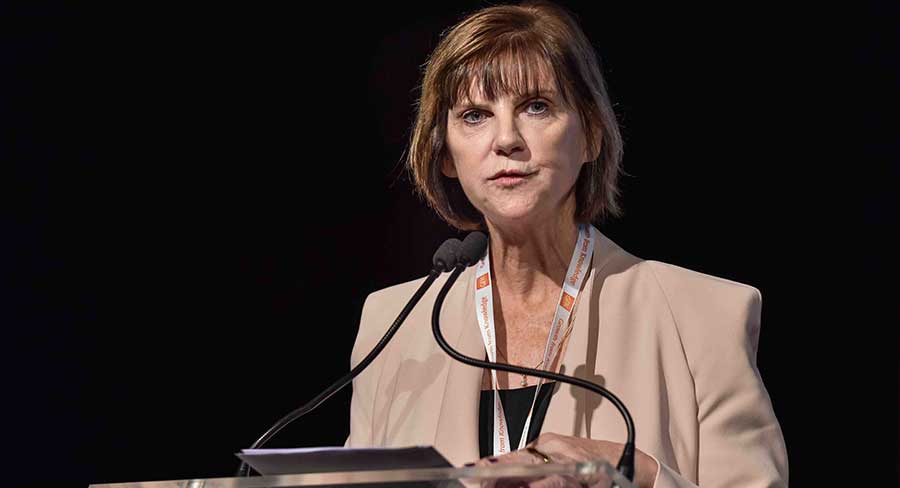
“Negotiated outcomes will help sustain radio stations in Australia, many of which service small and local communities that have no other source of local news and information.”
In its determination, the ACCC said the authorisation is likely to result in public benefits from reduced transaction costs, improved input into negotiations and contribution to the sustainability of Australian news businesses.
The ACCC pointed to research by the Public Interest Journalism Institute that there had been a net reduction of 106 in newspaper mastheads, news websites and broadcast news stations between January 2019 and August 2021.
“The ACCC notes that commercial radio stations including those operated by CRA’s members play an important role in providing regional and local reporting,” the competition regulator said.
Dec 3: ABC to add more than 50 journalist roles in regional Australia
The ABC has announced an additional 50-plus journalist roles in regional locations as a result of deals struck with Facebook and Google.
Following the passage of the News Media Bargaining Code in February, which included the public broadcasters, the ABC entered into commercial negotiations with the digital platforms.
An agreement was signed with Facebook this week and follows an agreement reached with Google last month. Revenue from both will go towards increasing the ABC’s investment in regional and rural journalism across Australia.
ABC managing director David Anderson said the agreements provided a significant boost to the ABC’s services in regional areas. “We decided at the very start of these negotiations that any net revenue we received from these deals would go where it is needed most – and that is in regional Australia.”
The ABC currently employs around 550 content makers in its 48 regional bureaux. The new roles created by this agreement represent an increase in the number of regional journalists of around 10 per cent.
